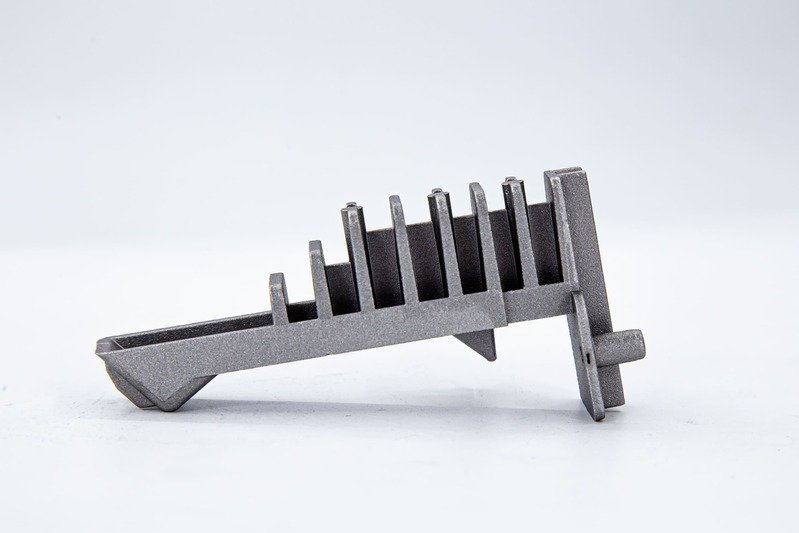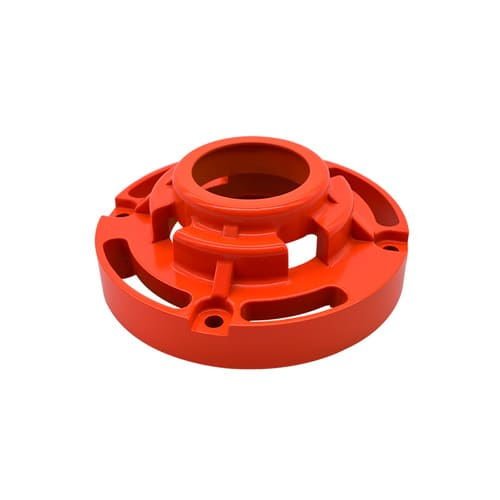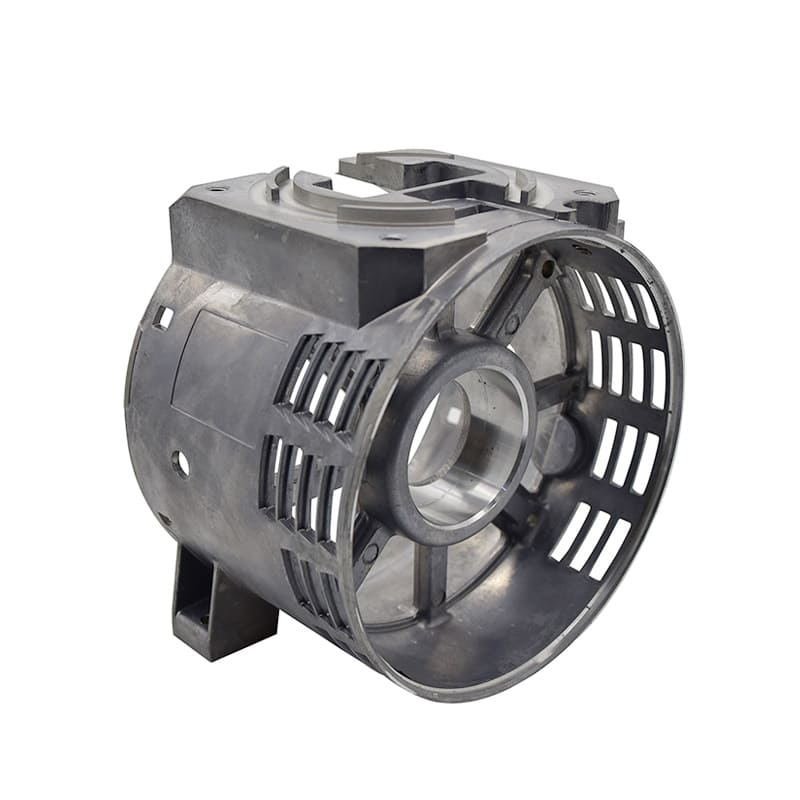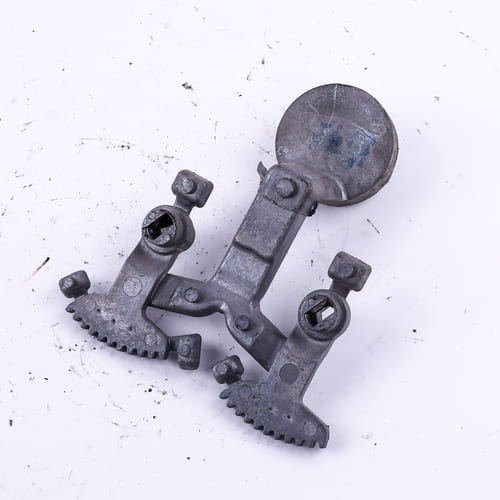
Mexico is an emerging hub for aluminum die casting companies, owing to its strategic location, skilled workforce, and favorable business environment. With the increasing demand for lightweight and durable components in industries such as automotive, aerospace, and electronics, the aluminum die casting market in Mexico is expected to grow significantly in the coming years.
In this article, we will provide a brief overview of the aluminum die casting companies in Mexico and their capabilities.
Capabilities of Aluminum Die Casting Companies in Mexico
Aluminum die casting companies in Mexico offer a wide range of capabilities, including design, prototyping, tooling, casting, machining, finishing, and assembly. They use state-of-the-art equipment and technologies to ensure high precision, quality, and efficiency in their processes. Some of the common capabilities of these companies are:
- High-pressure die casting: This is the most common method used by aluminum die casting companies in Mexico. It involves injecting molten aluminum into a mold under high pressure, to create complex and accurate shapes with excellent surface finish.
- Low-pressure die casting: This method is suitable for producing large and thick-walled components with minimal porosity and better mechanical properties. It involves filling the mold with molten aluminum at low pressure, using a furnace or a ladle.
- Gravity die casting: This method is suitable for producing medium to large-sized components with simple shapes and thick sections. It involves pouring molten aluminum into a permanent mold, under the influence of gravity, to create a uniform and dense structure.
- CNC machining: This is a post-casting operation used to remove excess material and achieve precise dimensions and tolerances. Aluminum die casting companies in Mexico use advanced CNC machines to perform machining operations such as drilling, milling, turning, and threading.
- Surface finishing: This is another post-casting operation used to enhance the appearance, corrosion resistance, and functionality of the components. Aluminum die casting companies in Mexico offer various surface finishing options such as painting, powder coating, anodizing, plating, and polishing.
Leading Aluminum Die Casting Companies in Mexico
There are several aluminum die casting companies in Mexico, with varying sizes and specialties. Some of the leading companies are:
Dynacast Mexico:
This company specializes in high-pressure die casting of complex and miniature components for industries such as automotive, healthcare, and consumer electronics. It has multiple plants in Mexico, including one in Tijuana and one in Zacatecas.
Nemak:
This company specializes in high-pressure and low-pressure die casting of aluminum components for the automotive industry. It has several plants in Mexico, including one in Monterrey, one in Saltillo, and one in Tijuana.
Grupo Proeza:
This company offers a range of services in the manufacturing sector, including aluminum die casting. It has a plant in Queretaro that specializes in high-pressure and low-pressure die casting of components for industries such as automotive, aerospace, and energy.
Castech Mexico:
This company specializes in high-pressure die casting of aluminum components for industries such as automotive, lighting, and medical equipment. It has a plant in San Luis Potosi that is equipped with advanced technology and quality certifications.
Castingod:
Castingod continues to evolve and shape the industry, and offer innovative and competitive solutions to meet the changing needs of their customers. Whether through investing in new technologies, expanding their global footprint, or diversifying their product offerings, die casting companies to have a unique opportunity to contribute to the growth and development of the global economy.
What is the process of die casting factory?
The process of die casting involves several steps in a factory setting, which can be summarized as follows:
- Preparation of the die: The die is prepared by cleaning and lubricating the surfaces to prevent sticking, and then assembled into the die casting machine.
- Melting of the metal: The metal to be cast is melted in a furnace and brought to the desired temperature and composition.
- Injection of the metal: The molten metal is injected into the die at high pressure, filling the cavity and taking on the shape of the die.
- Cooling and solidification: The metal is left to cool and solidify inside the die, with the cooling time depending on the size and thickness of the part.
- Ejection of the part: Once the part has cooled and solidified, the die is opened and the part is ejected from the cavity.
- Trimming and finishing: The part is removed from the machine and any excess material is trimmed off, followed by any necessary finishing operations such as polishing, deburring, or painting.
- Inspection and quality control: The finished part is inspected to ensure it meets the required specifications and quality standards, with any defects or flaws addressed and corrected as needed.
- Packaging and shipping: The part is then packaged and prepared for shipping to the customer, ready for use in their intended application.
Overall, the die casting process is a highly efficient and precise method of manufacturing complex metal parts with a high degree of accuracy and repeatability.
The Rise of Die Casting Companies in the World
Die casting is a manufacturing process that involves the production of metal parts by forcing molten metal into a mold, or die, under high pressure. This process is widely used in various industries, such as automotive, aerospace, electronics, and consumer goods, due to its high efficiency, accuracy, and cost-effectiveness. In recent years, the die casting industry has experienced significant growth worldwide, driven by various factors such as technological advancements, globalization, and market demand.
Technological Advancements
One of the main drivers of the rise of die casting companies in the world is the continuous development of new technologies that enable faster, more efficient, and more precise production of metal parts.
For example, advances in computer-aided design (CAD) and a simulation software have enabled engineers to design and optimize complex geometries and structures with greater accuracy and speed.
Similarly, the use of advanced materials and alloys, such as aluminum, magnesium, and zinc, has improved the strength, durability, and lightweight properties of die-cast parts, making them more suitable for a wider range of applications.
Globalization
Another factor that has contributed to the growth of die casting companies in the world is the increasing globalization of markets and supply chains.
With the rise of e-commerce and international trade, manufacturers can now source and distribute raw materials, machinery, and finished products from various countries and regions, depending on their cost, quality, and availability.
This has led to the emergence of new markets and opportunities for die casting companies to expand their operations and reach new customers around the world.
Market Demand
Finally, the rise of die casting companies in the world can be attributed to the growing demand for metal parts in various industries, especially in developing countries where rapid urbanization and industrialization are driving the need for infrastructure, transportation, and consumer goods.
For instance, the automotive industry is one of the largest consumers of die-cast parts, as vehicles require numerous components such as engine blocks, transmission housings, and structural parts that are produced through die casting.
Similarly, the electronics industry relies on die-cast parts for components such as heat sinks, housings, and connectors that require high precision and thermal management.
Conclusion
Aluminum die casting companies in Mexico are poised for growth, thanks to their capabilities, expertise, and proximity to key markets. They offer a cost-effective and reliable solution for the production of lightweight and durable components for various industries. By leveraging the strengths of these companies, manufacturers can enhance their competitiveness and meet the demands of their customers.








